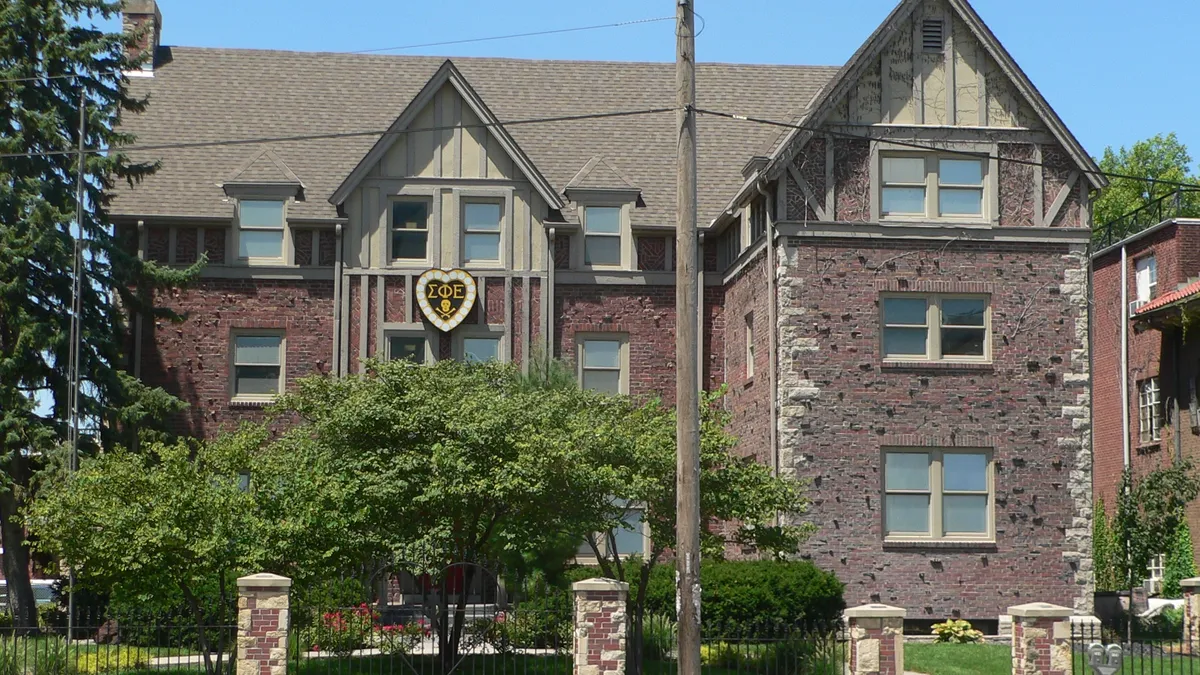Dive Brief:
- Sigma Phi Epsilon is leaving the North American Interfraternity Conference (NIC), saying the trade association has failed to adequately address matters such as student safety, particularly alcohol and substance abuse and underage drinking.
- The fraternity said in its announcement last week that NIC's health and safety initiatives had seen significant staffing cuts, with "little to no accountability" to ensure policies that the entire association adopted are being implemented.
- NIC representatives released a blistering statement, saying they were "offended" by the way the fraternity publicized its departure and that Sigma Phi Epsilon had previously approved the conference's decisions.
Dive Insight:
NIC passed a set of reforms in 2015 known as "NIC 2.0," which involved launching a sophisticated public relations campaign, developing programming for fraternity officers and staff, and creating a database in which association members could share best practices.
Sigma Phi Epsilon said in its statement that while the fraternal council has made "notable strides in several areas," it needs to focus more on students' safety and work with campus professionals.
"The original vision of NIC 2.0 was one that could have been transformational for fraternity communities, but the Conference is no longer proceeding toward those goals," said Brian Warren, CEO of Sigma Phi Epsilon, in a statement. He added that the fraternity has "diverged from" the council on its approach to health and safety.
"At SigEp, we must deploy resources in ways that achieve our priorities," he said.
In 2018, NIC voted to ban drinks with an alcohol content of 15% or more at all fraternity events unless a licensed-third party vendor served them. The rule took effect in September of this year, though some chapters were offered an extension.
The fraternity called the ban a "step in the right direction," but said the measure did not completely address the issue.
Fraternities have come under greater scrutiny in the last few years in light of a series of fatal hazing episodes. In the wake of these deaths, some college leaders decided to temporarily or permanently ban chapters from campus. Administrators say this allows more oversight and gives the chapters a chance to expand membership. However, observers worry the chapters will move underground and out of campus officials' reach.
In a statement, NIC representatives rejected the assertion that the association doesn't sufficiently promote student safety.
They also pointed out that the fraternity initially supported NIC decisions, such as pursuing litigation at Harvard and Yale universities "in defense of the fraternity experience" and lobbying for the Collegiate Freedom of Association Act in Congress.
NIC represents 66 fraternities across 800 campuses, according to its website. When NIC 2.0 was approved in 2015, it listed 73 member fraternities.














